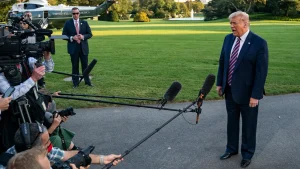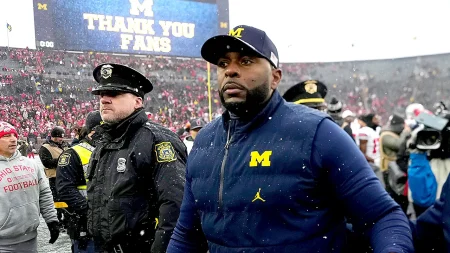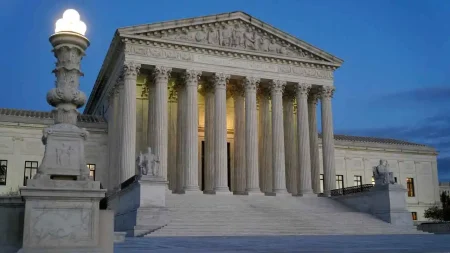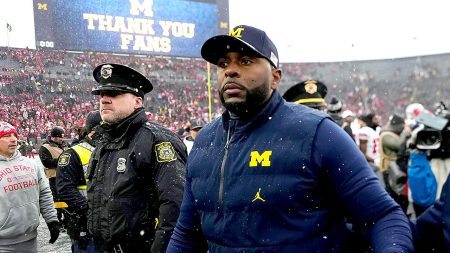The recent wildfires ravaging Southern California have ignited widespread concern and prompted mass evacuations, painting a grim picture of devastation across the affected regions. Former NFL quarterback Chase Daniel, now a sports analyst for FOX Sports, offered a firsthand account of the disaster’s scale, sharing an aerial photograph on social media that captured the inferno’s alarming reach. His post, accompanied by a caption expressing the fires’ severity and his proximity to the affected areas, underscored the urgency of the situation, highlighting the impact on communities like Pacific Palisades and Malibu. Daniel, whose career spanned from 2010 to 2022, played for several NFL teams including the New Orleans Saints, Kansas City Chiefs, Philadelphia Eagles, Chicago Bears, Detroit Lions, and Los Angeles Chargers before transitioning to sports analysis.
Daniel’s account paints a sobering image of the wildfires’ impact, emphasizing their magnitude and the threat they pose to homes and livelihoods. His words, “These fires are much worse than people think…just absolutely devastating Pacific Palisades & Malibu,” resonate with the urgency of the situation. The aerial perspective he provided further illustrates the fires’ extensive spread, conveying the gravity of the unfolding disaster. This firsthand perspective from someone within close proximity to the fires underscores the immediacy and widespread impact of the crisis. His post serves as a stark reminder of the destructive power of nature and the vulnerability of communities in the face of such events.
The wildfires that erupted across the Los Angeles area between Tuesday and Wednesday rapidly escalated into a major crisis, forcing thousands to abandon their homes and seek safety. The fires, originating in various locations including a nature preserve northeast of Los Angeles, the Pacific Palisades neighborhood, and the San Fernando Valley, quickly spread, fueled by dry conditions and strong winds. The speed and intensity of the fires presented a significant challenge for firefighters as they battled to contain the blazes and protect communities. The multiple fire fronts underscored the unpredictable nature of wildfires and the widespread threat they pose. The rapid escalation of the fires necessitated large-scale evacuations, highlighting the critical need for preparedness and rapid response in such situations.
Among those affected by the evacuations was the mother of Golden State Warriors head coach Steve Kerr, adding a personal dimension to the widespread impact of the disaster. The forced displacement of residents like Kerr’s mother underscores the far-reaching consequences of the wildfires and the disruption they cause to countless lives. The evacuations, affecting individuals from various walks of life, highlight the shared vulnerability in the face of such natural disasters. The personal experiences of those forced to flee their homes add a human element to the statistics, emphasizing the emotional toll and the disruption to daily life.
The rapid spread of the wildfires highlights the precarious conditions that have fueled their growth, including dry vegetation, strong winds, and elevated temperatures. These factors combine to create a volatile environment where fires can ignite and spread rapidly, posing a significant challenge to containment efforts. The dry vegetation acts as tinder, readily igniting and fueling the flames. Strong winds propel the fire fronts, carrying embers and spreading the blaze across wider areas. Elevated temperatures further exacerbate the conditions, drying out vegetation and creating a more combustible environment. The confluence of these factors emphasizes the crucial need for preventative measures and effective fire management strategies.
The Southern California wildfires serve as a stark reminder of the increasing threat of such events in a changing climate. Drier conditions, rising temperatures, and increased wind activity contribute to a greater risk of wildfires. The frequency and intensity of these fires underscore the urgent need for comprehensive strategies to mitigate the risks and protect communities. These strategies include proactive measures such as controlled burns, vegetation management, and community preparedness programs. Addressing the underlying causes of increased wildfire risk, such as climate change, requires a collective effort to reduce greenhouse gas emissions and transition to more sustainable practices. The wildfires underscore the interconnectedness of human activity and the natural environment, emphasizing the need for responsible stewardship to protect both lives and livelihoods.














